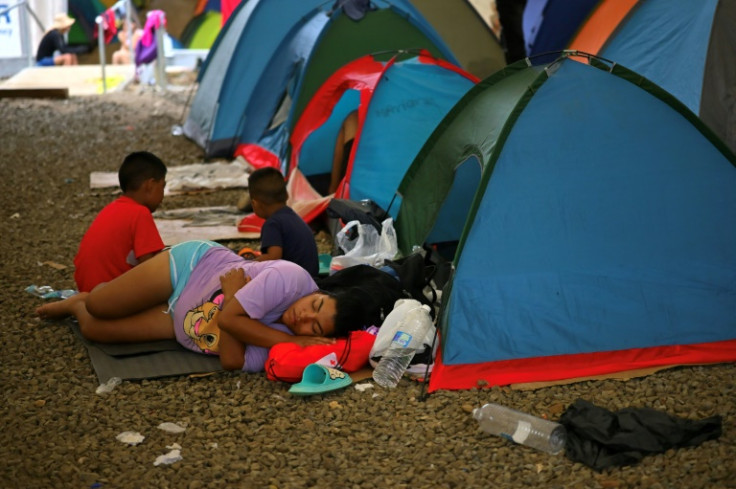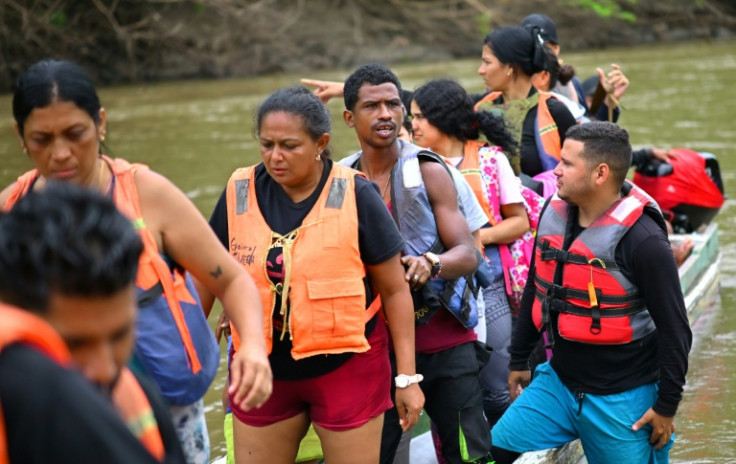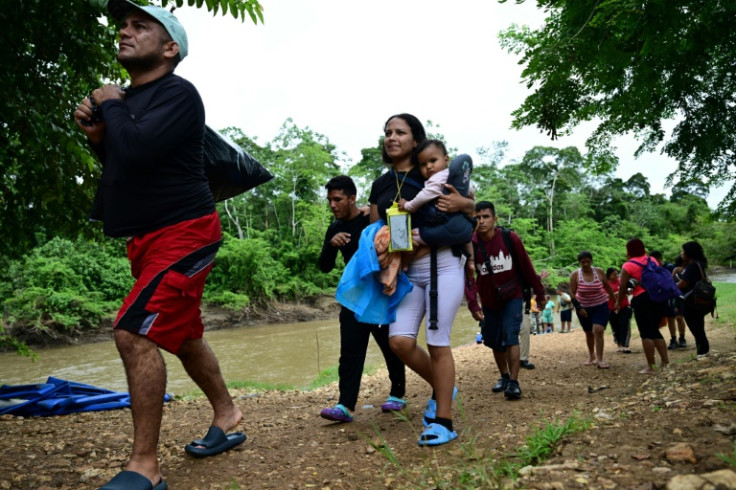
Oswards Ruiz said he had no choice but to flee Venezuela after President Nicolas Maduro claimed reelection in a July election the opposition says he stole.
Seated on the ground next to a flimsy tent in a jungle in Panama, the 39-year-old said that, after the vote, he started receiving death threats for supporting the opposition.
"The people achieved what we wanted: to win the election. But they stole it from us," he told AFP.
"We were beaten up by the 'colectivos' (pro-Maduro armed groups), and we had to flee... I left my country because they wanted to kill me."
So Ruiz and a companion traded one life-threatening situation for another, opting for an arduous trek through the Darien jungle separating Colombia from Panama, from where they hope to reach Central America, Mexico, and ultimately the United States.
"That jungle is the worst thing that can happen to a human being," Ruiz said of the crossing, adding he had seen several corpses along the way.
A few meters from his tent, Rosa Perez, a 40-year-old fellow Venezuelan, sat crying.
A family member who had accompanied her and her son Matias, 11, on the journey, was swept away by a river in the Darien.
"When they were crossing the river, they slipped and he (her son) managed to get out because his backpack floated. The other one did not," Perez said, showing a photo of the missing man, 25-year-old Reiner Jimenez.
An 80-percent drop in GDP in a decade under Maduro pushed more than seven million Venezuelans -- almost a quarter of the population -- to seek a better life elsewhere in recent years.
Many had hoped to return under a new, opposition-led government, which polls had predicted.
But the prospect of another six years of Maduro -- whose re-election claim has been rejected by dozens of countries, including the United States -- has pushed more to leave instead.
Venezuelan opposition leader Maria Corina Machado had warned on election day that another "three, four, five million" people would likely leave if Maduro "grabs power."
In an interview with AFP over Zoom on Friday, she warned that "some people can't wait" for the situation to improve.
"When you are starving, when you cannot enroll your child in school, when you cannot afford medicine... you cannot wait for these processes to consolidate."
At a migrant reception center in Lajas Blancas, a jungle hamlet some 250 kilometers (155 miles) east of Panama City, hundreds of people sleep in wooden barracks or tents.
The Panamanian government, with international assistance, provides basic services that allow migrants to recover their strength before starting the next leg of their journey, to Costa Rica.
In 2023, a record 520,000 people crossed the Darien, risking life and limb in treacherous terrain dotted with pumas, jaguars and other wild animals as well as criminal gangs.
So far this year, the number stands at about 260,000 -- some two-thirds of them Venezuelans.
The number is down from last year due, Panama says, to it closing several jungle routes.
A Venezuelan soldier, who asked to be identified only as Jose for fear of reprisal, told AFP in Lajas Blancas he left before the July 28 vote, with his family and their pet dog.
"Very few soldiers decided to stay. I was one of those who decided to leave my country, because I do not agree with the things happening there," he said.
"We had hoped this government would end and we could return," but now, "all those illusions are gone."
At the UN General Assembly in New York this week, Panama's President Jose Raul Mulino held up Venezuela as a "concrete example" of the political instability he said was driving "massive migration."
Since taking office in July, Mulino's government has expelled dozens of migrants from Colombia, Ecuador and India on flights financed by the United States.
Washington has pledged $6 million for migrant repatriations from the Central American nation in the hopes of reducing irregular crossings at its own southern border in an election year.
Panama is allowing Venezuelans through, however, given the dire political and economic situation in their country.
Ruiz's travel companion, Marcos Arcilla, predicted more Venezuelans will leave "because people are going to starve there."
"Nobody goes through there (the jungle) because they want to," added Perez.











